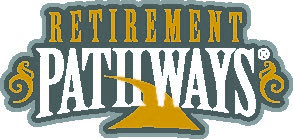SUBSCRIBE
Enter your Name and Email address to get
the newsletter delivered to your inbox.
Please include name of person that directed you to my online newsletter so I can thank them personally.


Dianne Williams Wildt, MBA
Certified Retirement Counselor®
Since 1983 in the financial services and investment industry
Retirement Pathways, Inc.
4500 Bowling Blvd., Suite 100
Louisville, KY 40207
Phone: 502-797-1258
Email: dianne@retirementpathways.com
Website: www.retirementpathways.com

Not that anyone should stay awake nights worrying about their retirement security, but overconfidence in the assets you project you’ll have for retirement can be your disadvantage. A 2023 study from the Center for Retirement Research at Boston College examined households’ self-assessed retirement preparedness and how it can influence retirement saving habits. The study used households in the National Retirement Risk Index.
Discounting the Importance of Both Spouses Saving— If you and your spouse are employed and want to continue your standard of living into retirement, you’ll have to replace both incomes. Even if one of you works part-time, both of you need to participate in a retirement plan—either at work, if eligible, or with a traditional IRA. This factor is most prevalent among high-income households. With the start of the new year, it may be a good time to contact your financial professional to review your retirement planning for overconfidence or retirement investment opportunities you may be missing.
Enter your Name and Email address to get
the newsletter delivered to your inbox.
Please include name of person that directed you to my online newsletter so I can thank them personally.
Enter your Name, Email Address and a short message. We'll respond to you as soon as possible.
Investment advisory services offered through American Capital Management, Inc., a State Registered Investment Advisor. Retirement Pathways, Inc. is independent of American Capital Management, Inc.
Retirement Pathways, Inc. and LTM Marketing Specialists LLC are unrelated companies. This publication was prepared for the publication’s provider by LTM Client Marketing, an unrelated third party. Articles are not written or produced by the named representative.
The information and opinions contained in this web site are obtained from sources believed to be reliable, but their accuracy cannot be guaranteed. The publishers assume no responsibility for errors and omissions or for any damages resulting from the use of the published information. This web site is published with the understanding that it does not render legal, accounting, financial, or other professional advice. Whole or partial reproduction of this web site is forbidden without the written permission of the publisher.